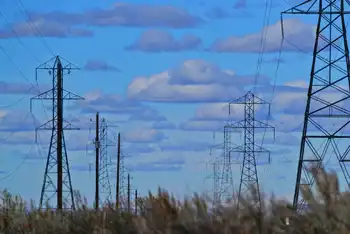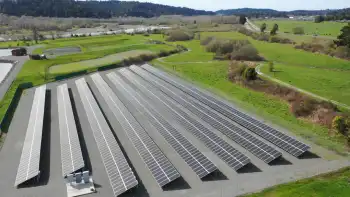UK may cut carbon storage funding
Treasury officials have reportedly told the government that it may have to scale down proposals for a multi-billion euro investment in carbon storage projects in the current economic climate. The UK has proposed Europe's most ambitious CCS-implementation scheme to date, pledging funding for up to four large-scale CCS projects to be running by 2015. The country has also told energy companies that permission for new coal-fired plants will be refused unless CCS is part of the planning application.
Commenting on the reports, Luke Warren, International Policy Executive at the Carbon Capture & Storage Association, said, if true, the news was 'dismal' and added that the UK would lose its position at the forefront of CCS technology development and jeopardize the country's carbon-emissions targets.
Speaking to IIR Europe, a spokeswoman for the Department of Energy & Climate Change (DECC) remained optimistic about the carbon-capture plans the agency has outlined, saying, "We are moving fast to legislate set-up of a levy mechanism to fund up to four CCS demonstration projects, including pre- and post-combustion technologies. The UK has set out bold proposals for coal and CCS. They are a world first, and our ambitions remain firm. We're determined to drive the development of CCS as part of the transition to a low-carbon economy."
Doosan Babcock has called for urgent action from the government to push forward the development and funding of CCS projects. The company claimed that unless revisions are made to DECC's report, 'Framework for the development of clean coal: consultation document,' there's a risk that DECC will fail to reach targets, and no new coal-fired power plants or CCS demonstrations will be built.
Doosan Babcock has proposed a 'middle way' that should satisfy both electricity companies and NGOs, while delivering the government's carbon objectives. Before the Copenhagen negotiations this year, the company wants a commitment by the government to at least four clean-coal projects — as opposed to 'up to four projects' — that cover at least three capture technologies, and two or three options for storage.
"A more ambitious programme of demonstrations funded by a contract for a different levy scheme could provide almost 5 gigawatts of CCS capacity by 2020," said Iain Miller, CEO of Doosan Babcock Energy Limited. "This would generate reliable, low-carbon electricity at an acceptable cost. The 'Middle Way' is central to achieving the objectives set out in the DECC consultation, and urgent action is needed to ensure plans for CCS for the UK to remain on track."
In October, the governments of the UK and Norway will host a leading carbon capture and storage event in London. The Carbon Sequestration Leadership Forum will bring together ministers from 23 countries, as well as the European Commission and energy companies, to discuss the G8's ambition to launch 20 CCS demonstration projects globally by 2010.
Energy and Climate Change Secretary Ed Miliband said: "There's enough potential under the North Sea to store more than 100 years worth of CO2 emissions from the UK's power fleet. We are also working closely with Norway and other North Sea Basin countries to ensure the North Sea fulfils its potential in the deployment of CCS in Europe. We want to get the UK regulatory framework in place so we can harness that potential and make the North Sea part of the CCS revolution.
"Without CCS there is no solution to climate change. As well as getting things in place in the UK and Europe, we need that consensus at the global talks in Copenhagen. The meeting in London will be a pivotal part of moving the discussion on CCS forwards."
Related News

Energy crisis: EU outlines possible gas price cap strategies
BRUSSELS - The European Commission has outlined possible strategies to cap gas prices as the bloc faces a looming energy crisis this winter.
Member states are divided over the emergency measures designed to pull down soaring inflation amid Russia's war in Ukraine.
One proposal is a temporary "flexible" limit on gas prices to ensure that Europe can continue to secure enough gas, EU energy commissioner Kadri Simson said on Tuesday.
Another option could be an EU-wide "framework" for a price cap on gas used to generate electricity, which would be combined with measures to ensure gas demand does not rise as a result,…




